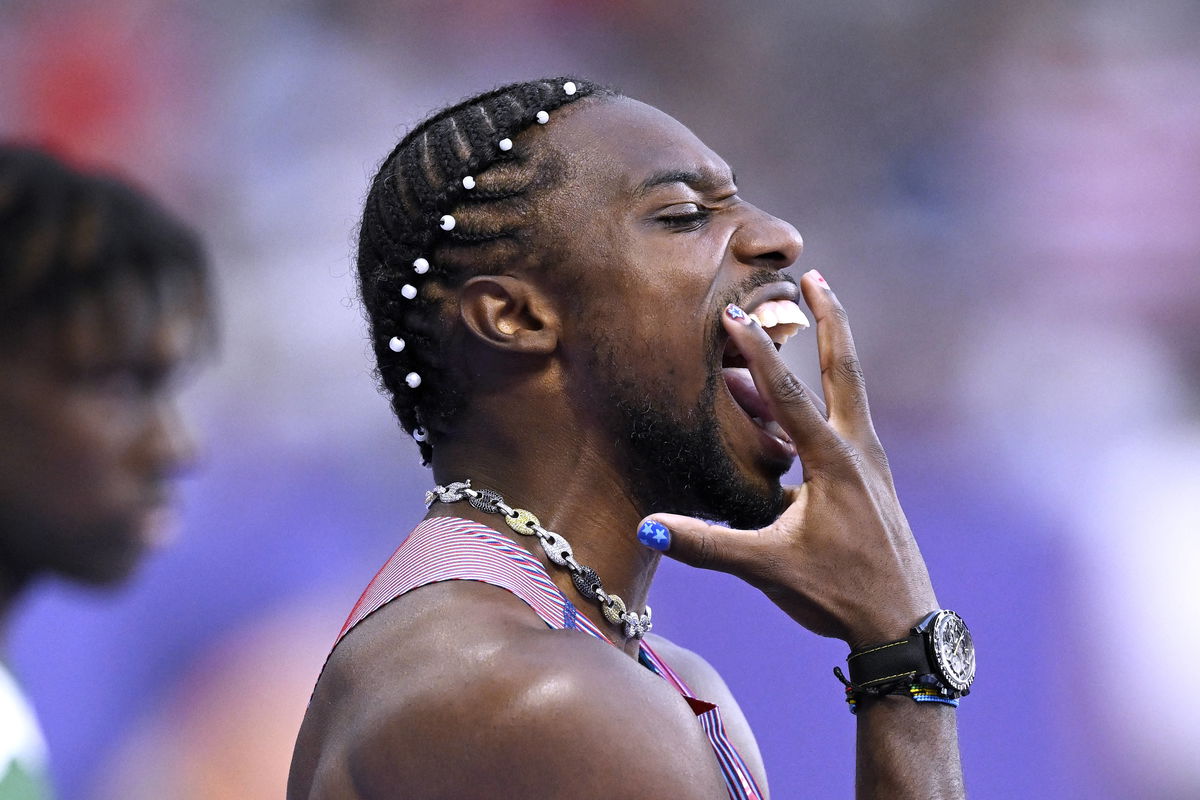
Imago
LYLES Noah Team USA Olympiasieger 3.Tag Leichtathletik 100m Maenner Finale Paris Olympische Spiele 2024 04. 08. 2024 Paris *** LYLES Noah Team USA Olympic Champion 3 Day Athletics 100m Men Final Paris Olympic Games 2024 04 08 2024 Paris Copyright: xLacixPerenyix

Imago
LYLES Noah Team USA Olympiasieger 3.Tag Leichtathletik 100m Maenner Finale Paris Olympische Spiele 2024 04. 08. 2024 Paris *** LYLES Noah Team USA Olympic Champion 3 Day Athletics 100m Men Final Paris Olympic Games 2024 04 08 2024 Paris Copyright: xLacixPerenyix
Track and field’s newest venture, the Grand Slam Track, aims to revolutionize the sport—but is it solving problems or creating new ones? Michael Johnson’s Grand Slam Track League promised a unified, elite competition, yet sprinter Noah Lyles questions its execution: “We’re just doing track and field with extra steps.” With that scheduling confusion and the marketing unclear, Noah Lyles has talked about the GST and praised the Diamond League. Lyles, being one of the top track and field stars, shed light on the issues that GST pertains to.
Watch What’s Trending Now!
Recently, Noah Lyles shared his thoughts on Grand Slam Track through his “Beyond the Records Podcast.” Sprinter Noah Lyles raises concerns about its structure compared to the well-established Diamond League, emphasizing a key difference: “What Grand Slam is doing and mixing it with the Diamond League… the reason that I don’t believe that can work is because the Diamond League meets are actually individual entities.”
Unlike the Diamond League, which operates as a collection of independently managed meets, the Grand Slam functions under a single ownership model. Lyles breaks it down further: “Grand Slam is under one umbrella—it’s all owned by Grand Slam; it’s a business model. The Diamond Leagues are all individual meets; they have their own meet directors and so on.”
Though Noah has some positive points about the Michael Johnson GST, maybe negatives are rolling over. He further added, “You can’t really do that as efficiently with the Diamond Leagues as it stands right now, in my opinion, which is why I do like having a league that is all under one umbrella.”

While the Diamond League united multiple competitions under one name for commercial success, Lyles doubts this approach can be applied effectively to the Grand Slam. “It just so happened that the Diamond League came and said, ‘Hey, let’s put this all under one name—this group of track meets—and let’s make money from it.’”
As the Olympic champion says, it doesn’t seem to happen, especially keeping the authenticity of the Diamond League in mind. It somewhere makes sense, right? Furthermore, Noah Lyles is also not convinced that the upcoming GST is the solution to track and field needs, as Johnson claims. Instead, he sees it as adding unnecessary complexity.
“One of the biggest issues is, yes, the scheduling is very odd in my opinion—especially from a marketing standpoint,” he explains. And if you remember, one of the reasons why Lyles isn’t participating in GST is marketing or broadcasting rights. The overlapping titles make it difficult to create a clear, compelling narrative for fans.
“From a marketing standpoint, how do you market something that two people can claim? There has to be a single winner.” Because with the GST, if one athlete wins a 100 or 200 m race, it would be a Grand Slam winner, and so people will get confused. Those who win multiple major competitions are also known as Grand Slam winners. Valid point. With that note, the question arises: will GST be proved to be a game changer?
Grand Slam Track: A game-changer or just another business model?
Noah Lyles, a prominent figure in track and field, has voiced concerns about the Grand Slam Track (GST) league’s broadcast strategy. He emphasizes the necessity of a solid media presence, stating, “If a tree falls in the woods and nobody’s around to see it, did that tree fall?” Though Johnson has resolved the issue. And guess what?
The former track legend got one of the top broadcasters on board, a partnership with The CW Network and NBC Sports, and a live stream on Peacock. The more media visibility is important, the more financial backing is needed. And that’s where GST was lacking when British Athletics withdrew. GST secured significant financial backing, raising $30 million to support initially.
But it was a shock; nonetheless, GST has now partnered with The CW Network and NBC Sports with plans to livestream events on Peacock, aiming to provide the necessary visibility and reach for the league. Lyles has expressed the need for clear broadcast plans, underscoring the importance of effective marketing and storytelling in promoting the sport.

With statements like ‘We don’t need Noah’ and ‘Only GST participants won’t be crying for money (due to the high prize money, of course), Michael Johnson is excited and all set to kickstart the new track and field journey. As the Grand Slam Track League prepares for its debut, doubts and excitement collide. While Johnson sees the future, Lyles remains undecided. Only time will tell if GST revolutionizes track and field or becomes just another bold experiment.

